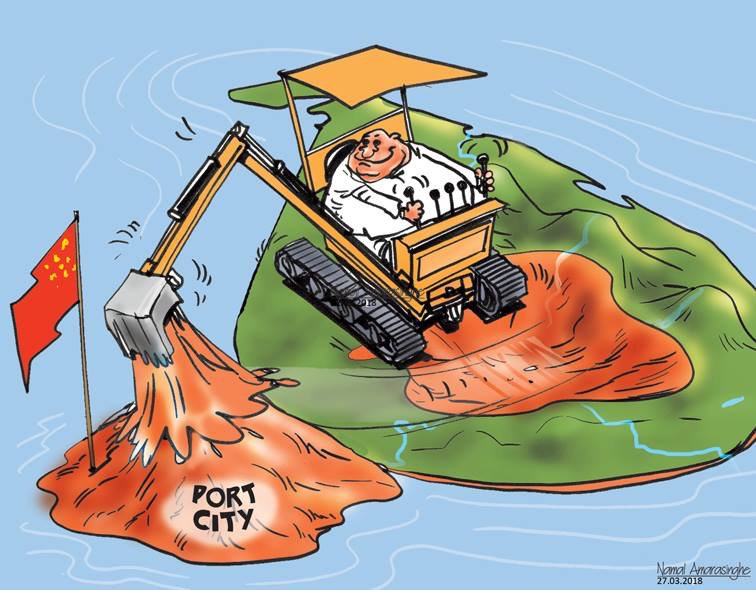Colombo (AsiaNews) – In Colombo, there is widespread belief among the city’s middle class, including people who voted for President Gotabaya Rajapaksa, that the city’s new port will become a “Chinese colony” if parliament adopts a bill setting up a Special Economic Zone (SEZ) in the artificial island especially created for the facility.
A number of petitions have been submitted to the Supreme Court, suggesting that the Colombo Port City (CPC) Commission Bill will place the port under Chinese influence and violate Sri Lanka’s territorial integrity and sovereignty.
The United States is also annoyed by the bill. On 10 April, the US Ambassador to Sri Lanka, Alaina B. Teplitz, said that the bill must take into account the economic impact of the new port.
“It (the Bill) also has to be considered for unintended consequences,” she said, such as “a haven for money launderers and other nefarious actors who want to take advantage of what was perceived as a permissive business environment for activities that would actually be illegal.”
For some observers, a new Chinese loan induced Sri Lankan government to favour the bill and not review the lease of Hambantota Port to Chinese interests.
On 22 March, Sri Lanka’s ambassador to China, Palitha Kohona, told the South China Morning Post that Sri Lanka had no plans to renegotiate the southern port agreement, describing news claiming otherwise as “rubbish”.
With the signing of a memorandum of understanding on 12 April, Sri Lanka would receive a US$ 500 million loan from the state-run China Development Bank.
Two weeks before the CPC Commission Bill was presented when negotiations for the second tranche of the loan were still ongoing, Sri Lankan Ambassador to the UN in Geneva C. A. Chandraprema slammed the UN Special Rapporteur’s report on ‘Religious Freedom’ at the 46th Session of the UNHRC, defending China on the Uyghur Muslim issue.
“I don’t think that a significant concern has been expressed by anyone about the condition of Uighurs,” he said. “As in the case of Sri Lanka, there are certain countries which are determined to raise issues in situations where there are no issues; create confusion, where there is no confusion”.
However, the authoritarian attitude of the Chinese embassy in Colombo has reinforced the idea of a quid pro quo between the two governments.
After the Sri Lankan government tabled the bill in parliament, Chinese diplomats offered local MPs a guided tour of the capital’s new port.
Opposition MP Harshana Rajakaruna asked why the Chinese embassy wants to take Sri Lankan MPs to the port, noting that the new facility is owned by the Sri Lankan government, and that Sri Lankan MPs do not need Chinese diplomats to visit it.
The Chinese embassy responded saying that it saw no problems with the matter, stressing that visits to the facility had been organised before, even during the pandemic.
(*) Colombo-based Journalist and political and economic analyst


